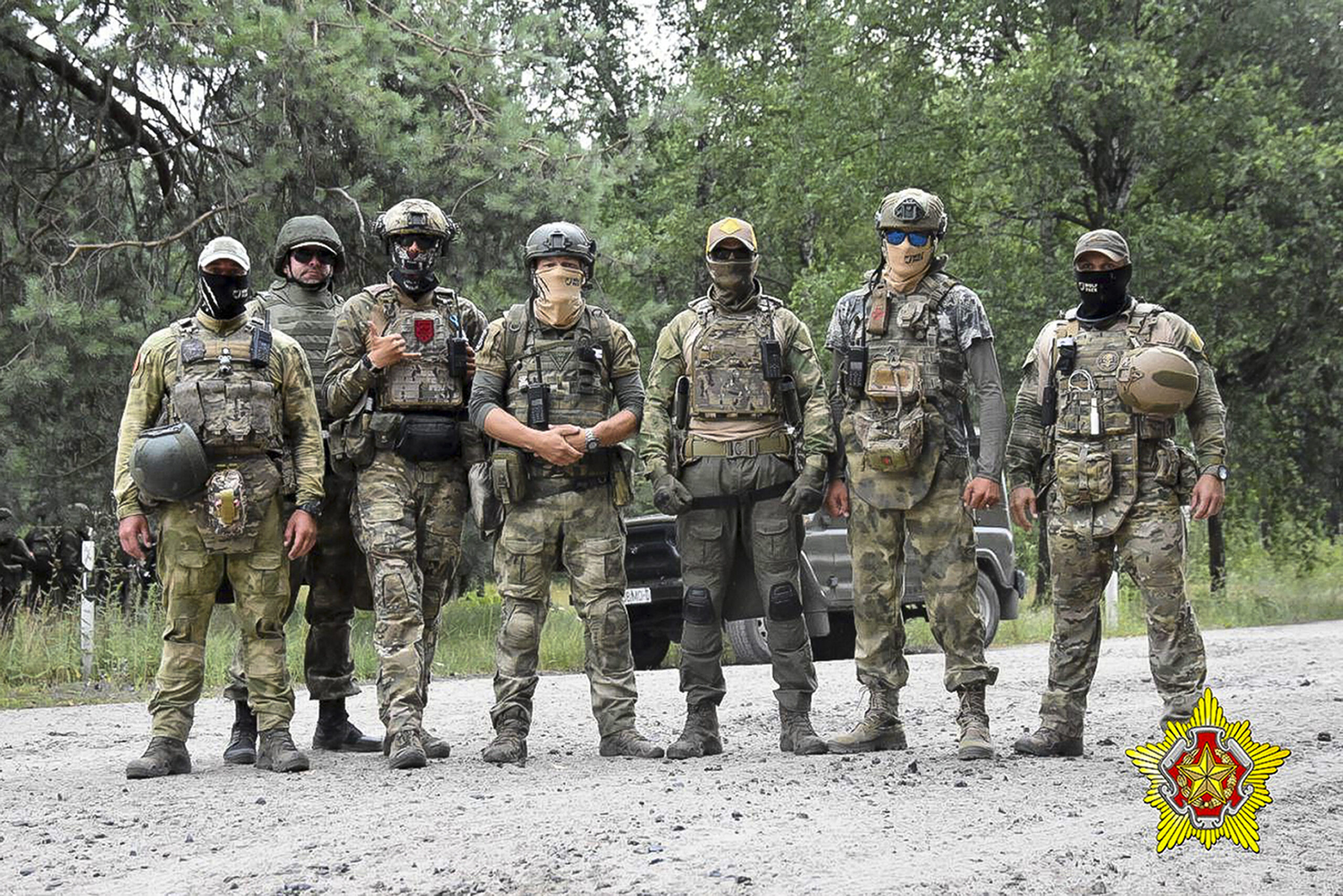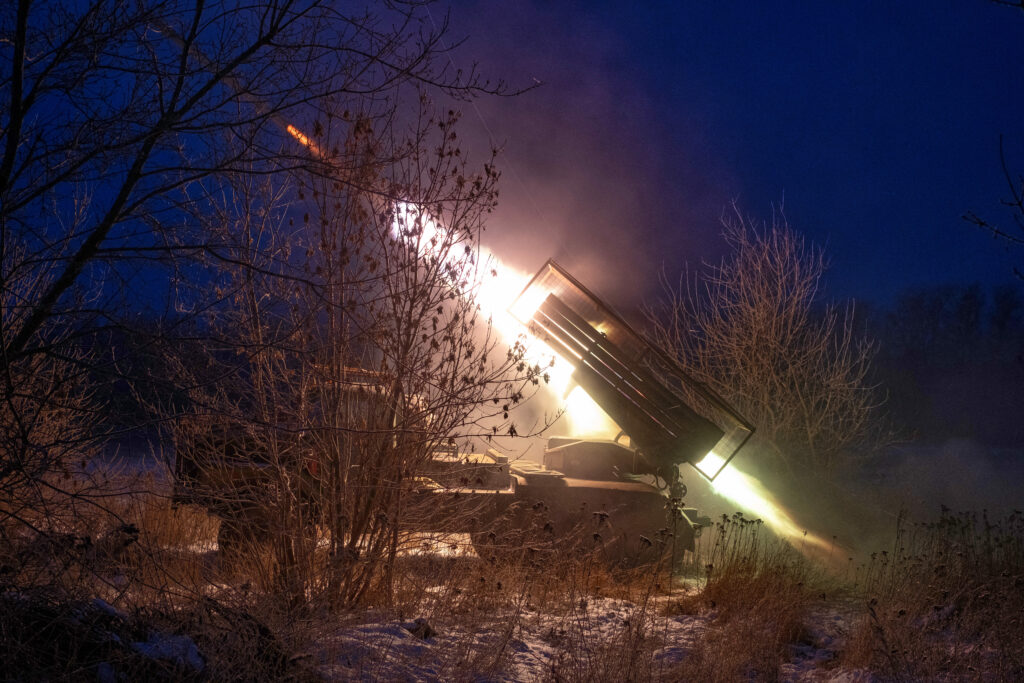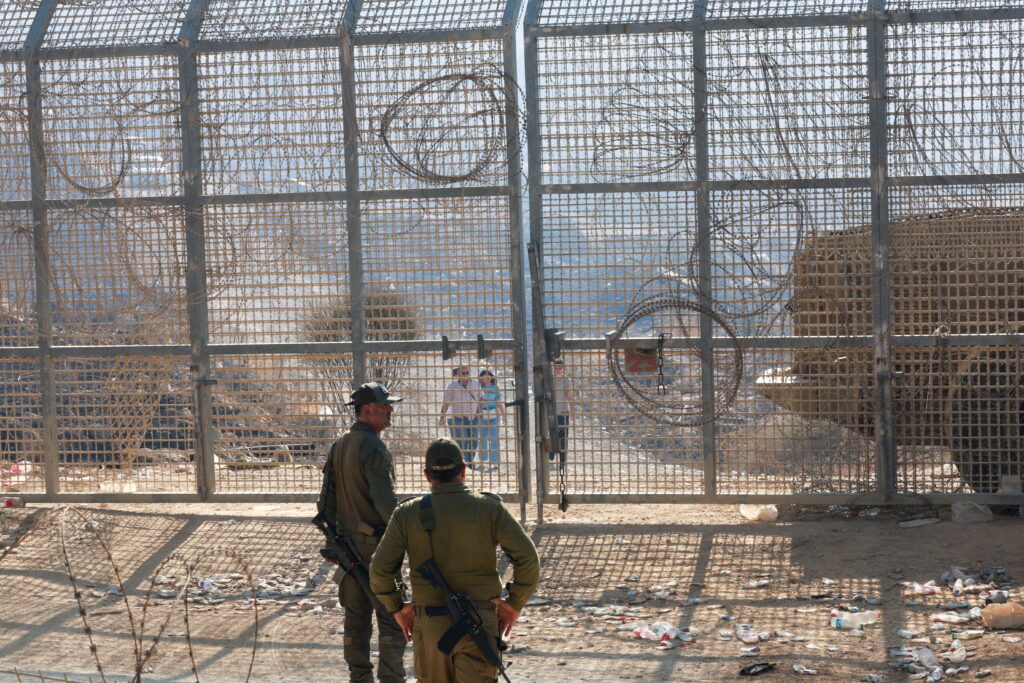Last month, Vladimir Putin told the Russian financial newspaper Kommersant that he had summoned the Wagner Group’s leadership to the Kremlin on June 29th, just days after their aborted attempt to oust Minister of Defense Sergei Shoigu and Chief of the General Staff Valeriy Gerasimov. Putin offered Wagner fighters the chance to continue serving under a new structure headed by Wagner’s Chief of Staff Andrei «Sedoy» Troshev. In the days that followed, statements attributed to well-known Wagner commanders were posted online, claiming that Troshev failed to encourage men to defect, and that he was not one of the true founding fathers of the Group. That recognition belonged to just two men: Dmitriy Utkin, the alleged namesake of Wagner who had not been seen in public in years, and Evgeniy Prigozhin himself.
Since then, we have seen Wagner move up to 4,000 men to Belarus, continue operations in Africa, and Prigozhin travel freely back and forth to Russia. Utkin has even stepped out of the shadows. In a dimly lit video recorded at Wagner’s new camp in Belarus, he announces «This is not the end — this is only the beginning of the greatest work in the world!»
The beginning of what exactly? The only thing that experts can seem to agree on is that Wagner’s attempted mutiny and its anticlimactic resolution have broken the mold of how we understand Putin’s political system. This past week, yet another rumor has spread that Wagner is largely returning to Russia, while others say they are gearing up to deploy more forces to Libya, or preparing for a grander campaign in Europe. Every new development defies expectations. We are left wondering whether the protagonists themselves — Putin, Prigozhin, Shoigu, and Gerasimov — have a plan, or are simply making it up as they go along.
Many outside observers have commented on Putin’s apparent weakness in responding to Prigozhin’s mutiny, but this misses the scale of the dilemma that Putin has created for himself in cultivating actors like Wagner. It also doesn’t account for the dilemma that Wagner itself now faces. Russia will need to continue leveraging «public-private partnerships» like the Wagner Group in order to support its war against Ukraine and other malign activity around the world. Wagner is not likely, however, to be replaced by another pseudo-private military company (PMC), or successfully migrated under the command of the Ministry of Defense. At the same time, to destroy Wagner entirely would be to lose immense ground in Africa.
What the Russian state and Prigozhin are left with, then, are several options to adapt or diminish. The Russian state will have to find new solutions to its recruitment challenge. Wagner itself can continue to exist if it can carve out a new niche and resolve its funding crisis. Meanwhile, Western governments can use this opportunity to make the international financial system a less welcoming place for these types of criminal networks.
Wagner is Unique in Russia’s Mercenary Marketplace
There are several so-called «private military companies» in Russia, though they can hardly be called private. I spoke with former Wagner Group fighter Marat Gabidullin, who explained «Those [organizations] that in the west they usually call PMCs, I don’t recognize them as PMCs. I proceed from the fact that Wagner has nothing to do with the abbreviation ‘PMC’.»
While mercenaries are officially illegal under the Russian constitution, the security services and the military have fostered several organizations with varying degrees of autonomy since the 1990s. Since 2014, these have fallen under the more direct control of military intelligence and the Ministry of Defense more broadly.
None of these organizations rival Wagner in size or resourcing, in part because they don’t need to: Their missions are vastly different. One example, Redut Security, was created from a pre-existing PMC structure to provide security for Russian phosphate assets in Syria, particularly those of its alleged curator, Putin ally Gennady Timchenko. Meanwhile, Wagner was fighting against ISIS, the Syrian Democratic Forces, and even American soldiers. Other Russian PMCs have historically undertaken more low-risk tasks than Wagner, and until recently, were less involved in direct combat arms operations. None approach the scale of personnel, arms, and mission that has characterized Wagner.
What Wagner and these organizations do share is support from the GRU. Located on territory next to the 45th Airborne Brigade in Kubinka, Redut has been widely identified by Russian investigative journalists and open-source researchers as an MoD-controlled operation. The soldiers who signed on with Redut, including those they poached from Wagner, signed a contract with an entity called «RLSPI». RFE/RL, who uncovered this contract, also found that RLSPI is a «regional laboratory for socio-psychological research» under the GRU, known by unit number 35555.
Leaked Wagner Group records reveal that that same unit number appears on the paper trail for arms transferred by the Ministry of Defense to the Wagner Group as far back as 2014. Telegram channels released similar documents in February of 2023 that show this unit continuing to supply Wagner with arms and ammunition. Beyond these overlapping levers of support, the similarity ends. Redut was dispatched to Ukraine before Wagner was given a role in the current war. They appeared in smaller numbers and were given more bounded tasks. Their failures in Ukraine have not stopped Russia from leveraging other MoD-owned structures.
Created by the Kremlin-appointed governor of occupied Crimea, the Convoy PMC also shares a lineage with Wagner but diverges in its form and function. Convoy is headed by one Konstantin Pikalov, a longtime player in the private security market, who also deployed with Wagner to locations ranging from Madagascar to the Central African Republic. While Wagner fought its grand siege in Bakhmut, Convoy appeared to mostly conduct small, targeted strikes in southern Ukraine.
Aside from these purpose-built GRU creations, the Russian mercenary market has seen several newcomers that are connected to the private sector. Consider the Gazprom units of Potok, Fakel, and Plamya, derided by Prigozhin as «Micro-PMCs,» and most bearing some ties to Redut. These units appear to be poorly equipped and unprepared. They are part of an amalgam that also features «volunteer units» created by local officials and reserve units of the Russian BARS system rather than true PMCs.
These units primarily serve as a means for recruitment and fielding men and to demonstrate their curators’ utility to Putin and Russian security elites. Gabidullin, who served not only with Wagner, but also with Redut, states that «They can’t compete on any level with Wagner. They are a way to replenish the armed forces. They are most often a temporary formation, which eventually dissolves.»
It’s not that other figures were necessarily less ambitious — it’s that the Wagner Group was the only organization positioned to even try to accomplish something on the scale of seizing Bakhmut. This unique position was a result of boons granted by Russian security services, namely MoD-provisioned arms and equipment and permission to recruit from prisons. This allowed Wagner’s leadership to demonstrate their commitment to the cause and elevate their domestic standing through the pursuit of conspicuous victories rather than recruitment alone. This strategy was costly and far riskier, but it offered the chance for Prigozhin to secure greater influence and access to rents than any of the other «patriotic oligarchs» playing the field. Ramzan Kadyrov, who claims to have deployed 7,000 Chechen fighters to Ukraine, is perhaps the closest analogue to Prigozhin with regards to personal military power. Unlike Prigozhin, Kadyrov has often deployed his men, particularly his «Akhmat» units, to places they will be very visible but face relatively little threat. After all, Kadyrov already has substantial security and access to rents in his role as guarantor of peace in Chechnya.
Commercial Sway
Neither Russian state structures nor the formations described above are well-suited to take on Wagner’s roles abroad. Aside from their combat potential, Wagner has another major differentiating factor: business ties. The commercial ventures that Prigozhin’s network has forged are at least as valuable for their financial value as the relationships that they foster.
In Sudan, Wagner has survived, in one form or another, a revolution ousting dictator Omar al Bashir, a coup, and now an armed conflict. This was enabled by their business with a variety of security actors. According to customs data, Wagner-linked companies in Russia have supplied not only the Sudanese military and its firms like SMT Engineering, but also firms linked to the Rapid Support Forces like Esnaad Engineering, and companies belonging to military intelligence like Aswar Multi-Activities. Russia’s state-owned arms exporters have not been as diversified in their relationships or industries in Sudan. Conversely, Wagner’s failures are also a consequence of inadequate local relationships. In Madagascar and Mozambique, Wagner did not effectively embed with local security and economic actors, leading to a string of failures culminating in their withdrawal.
Wagner not only builds local links to conflict actors through money but also by demonstrating commitment to deploy its men to fight and die. Wagner has succeeded in the developing world precisely in those countries which the Russian security services are unlikely to devote attention, and where the Russian public is least likely to see the logic in Russian service members dying abroad.
Defection
Wagner’s human capital is another differentiating factor that creates dilemmas for the Kremlin. The Wagner Group’s highest command echelons have, since 2014, seen combat in a range of forms and theaters nearly unparalleled amongst the Russian armed forces. In combat, they have applied a flexible model built around «Assault Detachments», as recorded in leaked documentation and described by former fighters. These units, originally conceived in Syria, are mobile forces that feature a variety of sub-units dedicated to roles from de-mining to fire support. They have been adapted in different theaters, operating against ISIS in Syria, militants in the CAR, the internationally backed Government of National Unity in Libya, and of course, in Ukraine.
Marat Gabidullin describes the structure of Wagner’s combat units as contingent on local circumstances and adversaries, with commanders given relative freedom of action: «The commander of an [Assault Detachment] is the Tsar of his own state.» This is also reflected in Wagner’s field reports, which detail the relative autonomy with which field commanders operate.
The Wagner Group has applied lessons from Africa and Syria in Ukraine. In Bakhmut, Wagner became widely known in the west for staging WWI-style «human wave attacks,» of prison recruits. But Wagner also effectively used rotating teams of daytime assault forces and nighttime forces equipped with night vision. They used artillery and mortar fires to soften enemy positions to allow them to advance. They benefitted from Russian airborne support more than Prigozhin or other Wagner leadership will admit, but nonetheless fought differently than the Russian Armed Forces did elsewhere at the time.
To lose the upper echelons of Wagner command would be to effectively lose the organization, both in institutional knowledge and identity. Even if the Ministry of Defense succeeds in peeling away most of Wagner’s forces, the resulting organization will not be Wagner unless they can both incentivize the command staff to defect and preserve the elements of Wagner’s flexibility that differentiate it.
Zero Trust Future
As a direct result of Prigozhin’s attempted mutiny, other pseudo-PMCs or a reconstituted Wagner are unlikely to benefit from the level of resourcing that the Wagner Group previously enjoyed. Both Wagner and the Russian military have struggled to navigate this field. We’ve already seen the MoD shoulder into prison recruitment, and a variety of other pseudo-PMCs appear. Russia’s Ministry of Defense claims that its effort to bring volunteer detachments to heel have been successful. In the last month, the State Duma not only raised Russia’s conscription age, but also passed a law empowering Putin to compel governors to create «special militarized formations.» These efforts are an expansion of the Russian government’s numerous channels for informal mobilization that offer the Russian war effort access to manpower, but don’t seek to mimic a structure like Wagner.
Though the Russian government has seized many of Prigozhin’s firms, it appears willing to allow Wagner to stay in Africa — at least for now. For its part, the broader Wagner information ecosystem have broadcast their continued presence in places like the CAR. Publicly, they set their sights higher: Prigozhin has tried to tie the recent coup in Niger to a larger narrative of «anti-colonial» movements backed by Wagner, even though there is no evidence of their involvement.
Belarusian President Alexander Lukashenko has welcomed Wagner in their role training the Belarusian military, presumably in exchange for money. But training the Belarusian armed forces and continuing work in Africa is a major demotion from Wagner’s previous privileged role within the Russian political and economic system. Without the finance, arms, and logistics of the Russian state, Wagner will struggle to maintain its influence abroad. In recent statements, Prigozhin appears to still hold out hope for reconciliation with Moscow and even to continue recruitment in Russia and to profit from contracts with the Russian state. As both Wagner and the Kremlin have time and again defied expectations, it’s not impossible that the Kremlin will agree to some form of continued limited support for Wagner, perhaps by continuing to provide air logistics for Wagner in Africa, or through limited provision of arms and finances.
It is more likely, however, that Wagner will have to look elsewhere, and grow into a new niche. Wagner may have to seek arms and support abroad, leaning further into arms and logistics partnerships in places like the Gulf States, China, and even North Korea, where it has previously sourced aircraft, weapons, and satellite imagery. Even if they succeed, local customers cannot pay Wagner sufficiently to sustain their previous scale and capacity, and Wagner’s resource extractives ventures cannot fully underwrite their deployments. As Eeben Barlow, the founder of influential South African PMC Executive Outcomes, has pointed out «It is very difficult to pay employees in barrels of oil [or] carats of diamonds.»
Persistent Threat, New Dilemmas
Even a diminished Wagner will continue to pose a threat to global peace and security, and the loss of Wagner will not halt Russia’s military aggression. A smaller, scrappier version of the Wagner Group could still practice predatory politics in the developing world, exploiting and entrenching corruption and deepening the grievances that insurgents rely on for recruitment. Other more authentically «private» PMCs have made fortunes and changed the course of history with fewer men and resources.
Wagner could also play a role in Ukraine and elsewhere in Europe, even as a smaller force. Ukrainian military officials have made no bones about the challenge of facing Wagner units in the field. Poland is bristling at the threat of a Wagner-driven incursion into its territory from Belarus and have even committed 10,000 troops to travel to the Belarusian border. Whether or not Wagner intends to stage operations against Poland, the threat of such an attack has led a NATO member to commit substantial resources and personnel to deterring it.
An adapted Wagner in Africa is likely to create further security dilemmas, perhaps different from those that we expect. In Niger, Western governments are justifiably alarmed at the specter of another Wagner deployment in the Sahel, given their presence in Mali and the wave of military coups in the region. While these military governments are hostile to their traditional European security partners and friendly to Russia, so far only Mali has seen real deployments of Wagner fighters. The tide of coups in the Sahel is much more closely tied to the region’s security crisis, poor governance, and corruption than it is the result of Wagner’s misadventures. True, Russia makes an effective ally of last resort for these new pariah states, often through Wagner. But the Wagner Group greatly inflates its role in the region where they are just one of many players. It costs little for Wagner to meet with coup leaders or stage information campaigns, but these activities pay great dividends in their international and domestic stature.
Western governments less frequently consider the opposing dilemma of Wagner in Africa. What if, rather than spread across the region, Wagner’s capabilities diminish? The West will need to rethink how it counters Wagner in Africa and prepare for catastrophic success. If Wagner is no longer able to defend governments in countries like the CAR and Mali, the already tenuous security balance in West and Central Africa may be in still more dire straits, particularly as Western security actors have been expelled or scaled down. This leaves the international community with a range of unpalatable choices. African governments and institutions will ultimately be the ones to decide the future of these countries, but Western governments need to think more creatively about aid and security assistance. This means taking local grievances more seriously, focusing on anti-corruption and transparency, and being consistent about the types of governments they are willing and unwilling to support.
For its part, Russia will continue to leverage other public-private partnerships for tasks ranging from recruitment to procuring defense technology and evading sanctions. These networks will continue to exploit corporate secrecy and gaps in financial enforcement to enable Russia’s aggression in Ukraine. Western governments and international institutions should implement strategies that both exploit Wagner’s current tenuous position and further isolate Russia’s other international illicit networks. This goes beyond sanctions to include a greater reliance on industry-wide advisories and increased pressure on Wagner’s international safe havens in place like the UAE. The international community should continue to leverage sanctions, but they will need to think about how they can keep pace with these networks — some of Wagner’s key logistics providers were publicly identified years before they were listed. Finally, the US and European states should prioritize developmental assistance and transparency as security priorities in and of themselves. Poor governance and corruption that Western governments may tolerate among their security partners also provide fertile ground for organizations like Wagner in the long run. In some ways, Wagner may be one of a kind, but among Russia’s malicious criminal networks, it’s in good company.










